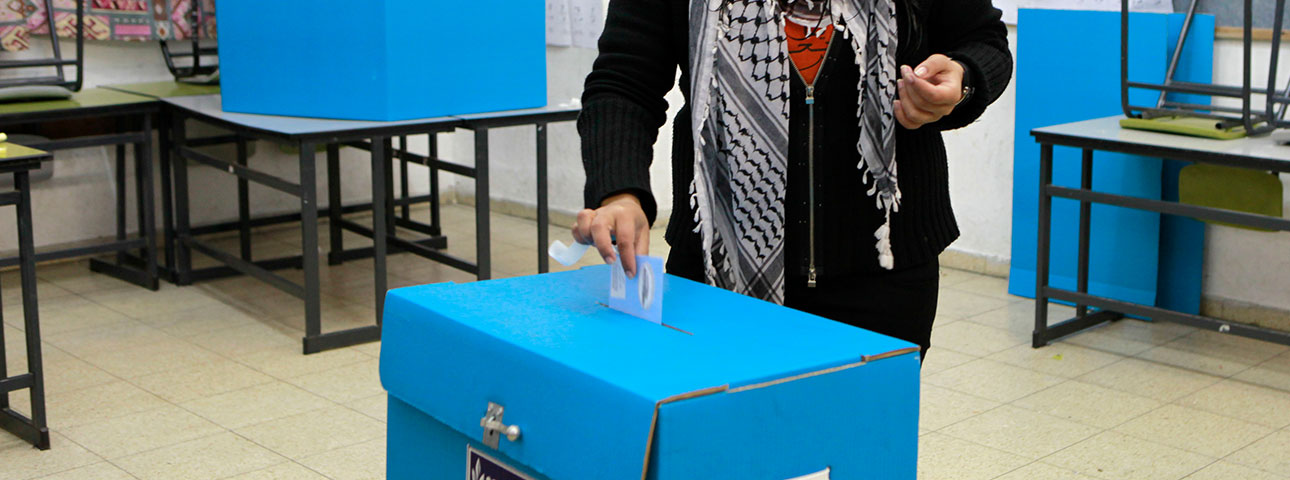The Voice that Doesn’t Count
One of the main explanations for the dramatic decline in voter turnout in the Arab Israeli sector in the last elections (49%, versus 63% in the 2015 elections) is the sense that the voice of Israeli Arabs — is a voice that doesn’t count.

Illustration | Flash 90
Because both the Likud and Blue & White parties explicitly ruled out any possibility of including Arab parties in a future coalition, and because the Arab parties also did not seek to enter a coalition with the Zionist parties, every Arab citizen voting for one of the Arab parties might be justified in feeling that they were voting for an opposition party, whose influence on government policy and on how the country is being run, would be minimal. This state of affairs, in which hundreds of thousands of citizens see themselves as irrelevant to Israeli democracy and see Israeli democracy as irrelevant to them, is very troubling, and sooner or later is likely to exacerbate the feeling of alienation of this large population vis-à-vis the state and its institutions.
The September rerun elections offer an opportunity to reassess the status quo regarding the participation of the Arab parties in the parliamentary game. The political dead end that made it necessary to go back to the ballot box (and which may be repeated after the coming elections)—the fact that Blue & White were unwilling to form a coalition with a Likud party still headed by Netanyahu; that Lieberman was unwilling to sit in a government with the ultra-Orthodox parties; that the ultra-Orthodox were unwilling to sit with Blue & White; and so on—challenges us to think outside of the box. Perhaps the recent op-ed by Netanyahu’s aid, Natan Eshel, in which he proposed to include Arab citizens in the country’s leadership, and the rumors of political cooperation between the Likud and some of the Arab MKs on the appointment of the State Comptroller, point to a growing acceptance of this idea.
But in order for such a dramatic change to materialize, action is required on two inter-related fronts: creating a plan for political cooperation between Jewish and Arab parties, and boosting on that basis the turnout of Arab voters at the next elections. This cooperation needs to be based on a political understanding between Jewish and Arab parties to advance issues on which there is broad consensus, such as strengthening internal security, improving the socioeconomic status of vulnerable populations, and safeguarding democratic institutions, while agreeing not to agree on questions related to the character of the State of Israel and the Israeli-Palestinian conflict, on which most of the Zionist and non-Zionist parties are divided.
As trust between the two sides grows, and the mechanisms for managing agreements and disagreements become more developed, it will be possible in the future for Arab parties to consider supporting the government without formally joining the coalition, and even to join the coalition on the basis of a specific platform. For example, a government could be formed as an ‘economic rescue’ government or a ‘democratic reforms’ government, with freedom to vote against the coalition position allowed on certain issues.
In this regard, the experience of ultra-Orthodox parties within present and past coalition governments, presents an interesting model. Even though the ultra-Orthodox parties do not accept the basic premises of the other coalition members regarding the secular character of the state, they have adopted a pragmatic approach that has enabled them to be a part of various governments over the years, both right and left. On the other hand, their presence in the government has given greater legitimacy to their participation in the political decision-making process on issues such as defense and security, despite the relatively low level of ultra-Orthodox conscription to the IDF.
Over time, we have seen how the participation of ultra-Orthodox parties in government and their taking responsibility for the provision of general public services, has been an important factor in the process of ultra-Orthodox integration into Israeli society, and has certainly significantly advanced the interests of that particular group.
The integration of Arab Israelis into the Israeli economy and society and bolstering their sense of belonging and identification with the state, is a challenge no less significant than the challenge of integrating ultra-Orthodox Israelis into the Israeli mainstream. Staying clear of ruling out any form of political cooperation between Arab and Jewish parties, and adopting a creative approach to political cooperation, can help overcome this challenge, strengthen the inclusiveness of Israeli democracy, and break out of the dead end in which the political system is currently trapped.
The article was published in the Jerusalem Report.
